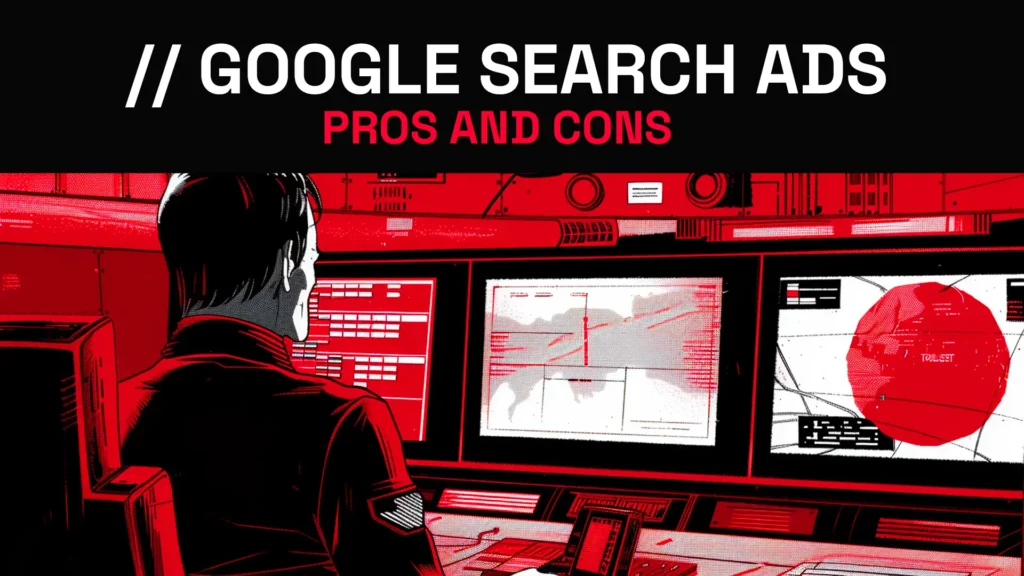TAKE YOUR BUSINESS TO THE NEXT LEVEL
Let us take marketing off your plate. Visit our pricing to learn more about working with Next Level.

Google Search Ads have become a vital tool for businesses looking to reach their target audience online. For small business owners operating in local markets with budget restrictions, understanding the pros and cons of this advertising platform is crucial for making informed decisions and maximizing return on investment (ROI).
One of the most significant advantages of Google Search Ads is the ability to target specific audiences based on their search queries. Just like a fisherman casting their net in a lake teeming with their desired catch, small businesses can use targeted keywords to reach potential customers actively searching for their products or services.
For instance, a local bakery can bid on keywords like “fresh bread near me” or “custom birthday cakes in [city name]” to attract customers specifically looking for their offerings. This targeted approach ensures that advertising spend is directed towards individuals most likely to convert into customers.
Google Search Ads operate on a pay-per-click (PPC) model, meaning that businesses only pay when a user clicks on their ad. This system allows small businesses with limited budgets to control their advertising spend and avoid overspending on ineffective campaigns.
Think of it as a vending machine: you only put in money when you know you’ll get a product in return. Similarly, with Google Search Ads, small businesses only invest in advertising when there is a genuine interest from potential customers, making it a cost-effective way to reach their target audience.

While Google Search Ads can be cost-effective, small businesses may face fierce competition when bidding on popular keywords. Large corporations with substantial advertising budgets can often outbid smaller players, driving up the cost-per-click (CPC) and making it challenging for small businesses to secure top ad positions.
Imagine a small, local coffee shop competing against a multinational chain for the keyword “best coffee in town.” The larger company’s deep pockets may allow them to dominate the ad space, leaving the small business struggling to gain visibility.

Creating and managing a successful Google Search Ads campaign requires time, effort, and ongoing optimization. Small business owners, who often wear multiple hats, may find it challenging to dedicate the necessary resources to continuously monitor, analyze, and adjust their advertising campaigns.
Just as a garden needs regular tending to flourish, a Google Search Ads campaign requires constant attention to prune ineffective keywords, adjust bids, and refine targeting. Without proper management, small businesses risk wasting their advertising budget on underperforming ads.
Google Search Ads can be a powerful tool for small businesses looking to reach their target audience and grow their customer base. However, it is essential to weigh the pros and cons carefully and consider the unique challenges faced by small businesses, such as budget constraints and limited resources. By understanding the potential benefits and drawbacks, small business owners can make informed decisions and develop effective advertising strategies that maximize their ROI.
Let us take marketing off your plate. Visit our pricing to learn more about working with Next Level.